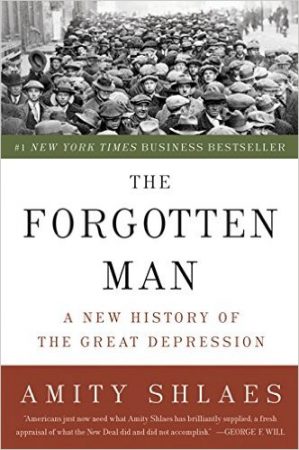

Imbedded in it is the tension between Roosevelt’s use of the term to mean the poor and downtrodden as contrasted with its first use by William Sumner. The title of the book, The Forgotten Man, is not what one first expects. FDR-and Herbert Hoover before him-tried to stop the depression through a myriad of government programs and interventions and both failed because they did not understand and could not predict the effects of their policies. Shlaes unravels the myth of Roosevelts heroic New Deal as the cure of the Great Depression, and shows how Roosevelts attempts to have the government plan its way out of the depression only deepened and lengthened it. The New Deal was a classic example of the remedy being worse than the disease.ġ,000 unemployed men marching from the Esplanade to the Treasury Building in Perth The Forgotten Man shows the dangers of economic planning, and echoes Friedrich Hayek’s critique that, despite even the best intentions, planning an economy can never work because there is just not enough information to make all the right decisions. She argues that while Roosevelt may have done some good, many of his policies had grievous consequences and that his experiments with the economy did untold harm to the many he tried to help. Three quarters of a century out, Shlaes takes a dispassionate look at the history of the depression with a focus on economics. My mother is older now but only slightly less passionate, and was happy when I showed her The Forgotten Man, Amity Shlaes’s new history of the Great Depression. Her father said that she would grow up and know better. During the depression, my mother would argue vigorously with her father, a Hartford fireman and committed Democrat, that Roosevelt’s New Deal was exacerbating the depression and placing America on a path toward statism.



We sometimes forget the passion that Roosevelt enkindled both pro and con. I had been shaped by my parents, especially my mother-a staunch opponent of Roosevelt since the time she was a teenager. My teacher took the conventional view of Roosevelt as a hero who got us out of the Great Depression. My youthful contention was that FDR had expanded the scope of government beyond the intent of the founders and harmed the economy. history class, I often argued with my teacher about the legacy of Franklin Delano Roosevelt.


 0 kommentar(er)
0 kommentar(er)
